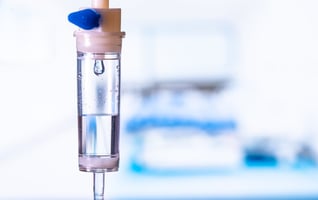Electroconvulsive therapy (ECT) for treatment-resistant bipolar disorder appears to be more...
Wider Use of ECT May Lead to Lower Readmission Rates, Study Finds
 |
“Previous studies have found that treatment with ECT is associated with remission from depressive disorders and reductions in mortality in individuals with MDD [major depressive disorder] and posttraumatic stress disorder,” lead author Eric Slade, Ph.D., of the University of Maryland School of Medicine and colleagues wrote. “The results of the present study add evidence that wider availability of ECT may result in up to 46% fewer inpatient readmissions within 30 days of discharge among individuals with severe affective disorders.”
For the study, Slade and colleagues relied on information contained in the Health Care Utilization Project’s State Inpatient Databases (SID) from general hospitals in the following nine states: Arizona, Arkansas, California, Florida, Nevada, New York, North Carolina, Utah, and Washington. (The rate of inpatient readmission within 30 days following discharge from psychiatric inpatient care is a metric commonly used to evaluate mental health systems.) While SIDs are available for most states, only the nine states included in the study had complete data on patient readmissions.
Among the 162,691 inpatients with a principal diagnosis of MDD, bipolar disorder, or schizoaffective disorder included in the analysis, 2,486 (1.5%) underwent ECT during their index admission. Compared with inpatients being treated for mental illness, those who received ECT were older, more likely to be female, and/or white non-Hispanic; have MDD diagnoses rather than either bipolar disorder or schizoaffective disorder; have private or Medicare insurance coverage; and were more likely to be seen in small, urban hospitals or nonurban hospitals.
Administration of ECT was associated with a reduced 30-day readmission risk among psychiatric inpatients with severe affective disorders from an estimated 12.3% among individuals not administered ECT to 6.6% among individuals administered ECT (risk ratio=0.54)—a 46% reduction in 30-day readmission risk. “The effect of ECT on 30-day readmission risk did not differ significantly by age or race/ethnicity but was relatively larger among men than women and among individuals with bipolar disorder and schizoaffective disorder than among those with MDD,” the authors wrote.
“The findings of Slade et al. should be interpreted in the context of a large and diverse body of evidence regarding ECT efficacy,” Harold Sackeim, Ph.D., a professor of psychiatry at Columbia University, wrote in a related editorial. “This includes randomized trials comparing ECT with sham treatment (anesthesia alone), randomized comparisons of the effect of ECT technical factors on clinical outcomes, randomized comparisons with pharmacotherapy, and large, prospective patient series in research and community settings. The evidence indicating that ECT is effective in the treatment of mood disorders is diverse, long-standing, and incontrovertible. In both the short term and long term, it appears to exert greater benefit than pharmacological alternatives.”
For related information, see the Psychiatric News article “Older Patients With Depression May Benefit From ECT, Medication Combo.”




